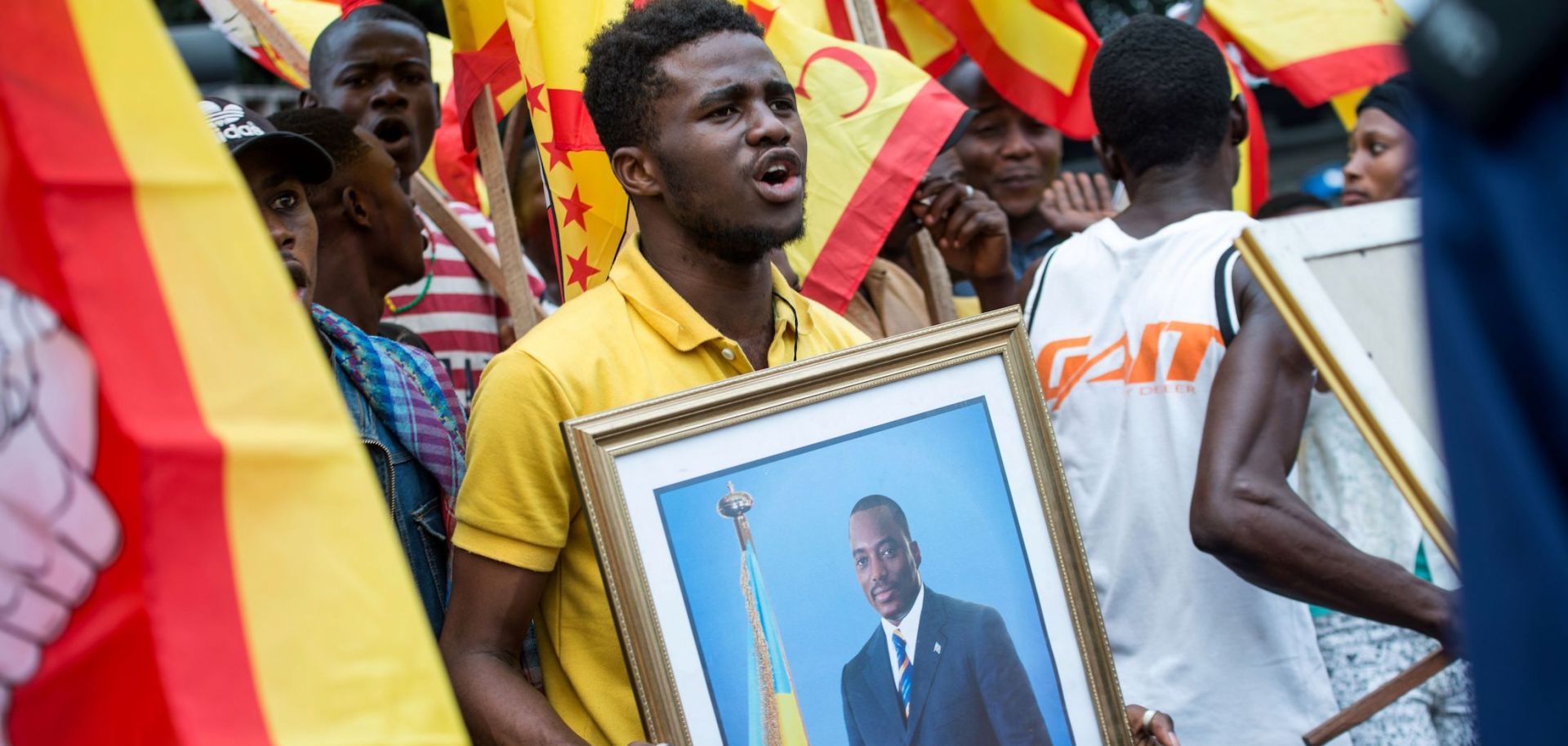ASSESSMENTS
Congolese President Finally Picks a Successor
Aug 10, 2018 | 09:00 GMT

A supporter of President Joseph Kabila stands with other people gathered outside the Democratic Republic of the Congo's parliament in the capital of Kinshasa, where Kabila was speaking on July 19, 2018. The country's ruling political alliance recently nominated a successor candidate to run for president in long-delayed elections set for December, but Kabila will remain a prominent figure in the background of Congolese politics.
(JUNIOR D. KANNAH/AFP/Getty Images)
Highlights
- President Joseph Kabila's designation of a successor will somewhat placate the United States and other international powers that have threatened key Congolese leaders with sanctions.
- Doubts about the government's ability to pull off a credible election by Dec. 23 remain, especially since flawed polling would likely benefit the ruling party.
- The soon-to-be former president will attempt to control his successor and to rule from behind the scenes, creating longer-term risks for the Democratic Republic of the Congo.
Subscribe Now
SubscribeAlready have an account?
